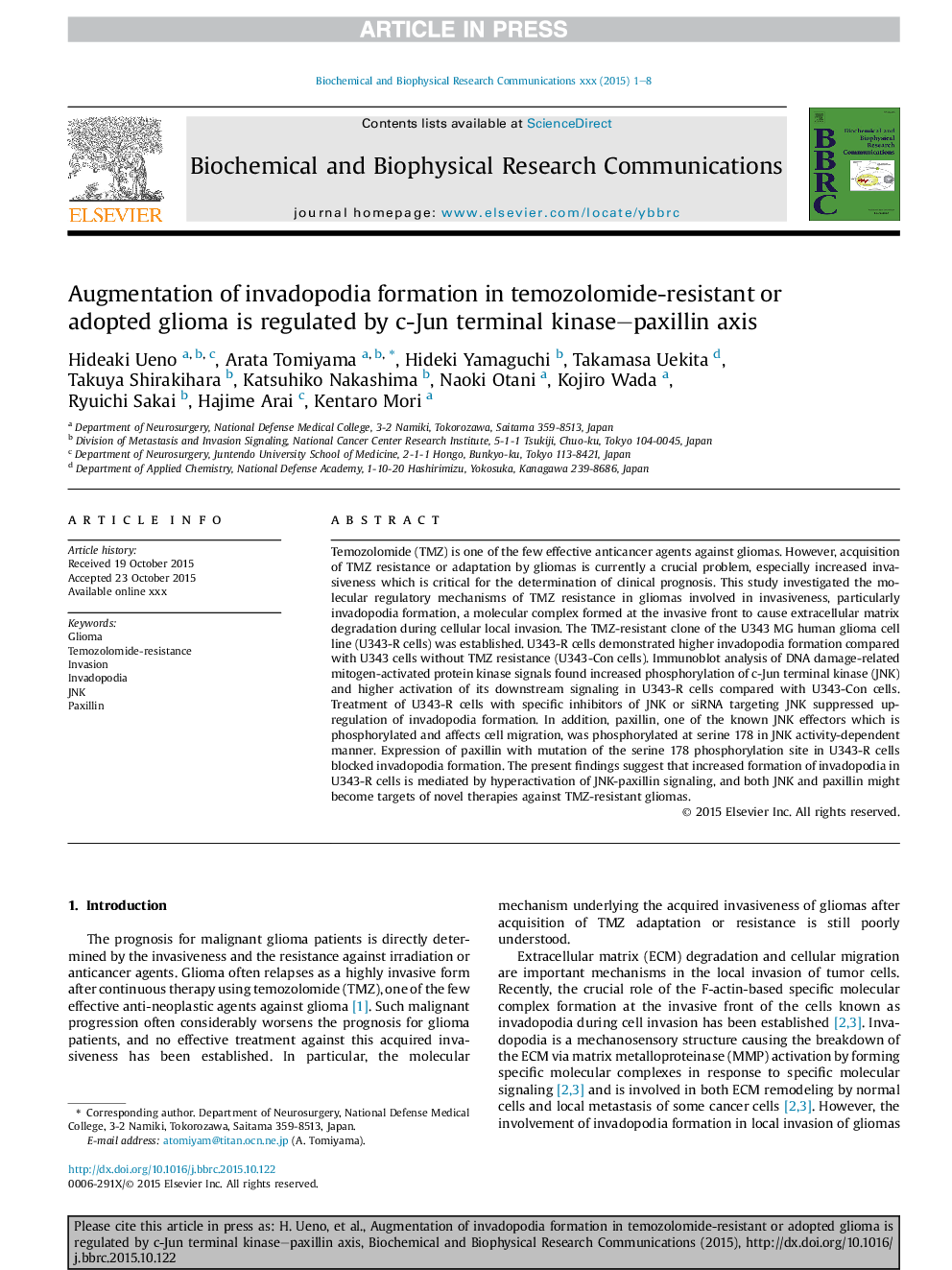| Article ID | Journal | Published Year | Pages | File Type |
|---|---|---|---|---|
| 8296772 | Biochemical and Biophysical Research Communications | 2015 | 8 Pages |
Abstract
Temozolomide (TMZ) is one of the few effective anticancer agents against gliomas. However, acquisition of TMZ resistance or adaptation by gliomas is currently a crucial problem, especially increased invasiveness which is critical for the determination of clinical prognosis. This study investigated the molecular regulatory mechanisms of TMZ resistance in gliomas involved in invasiveness, particularly invadopodia formation, a molecular complex formed at the invasive front to cause extracellular matrix degradation during cellular local invasion. The TMZ-resistant clone of the U343 MG human glioma cell line (U343-R cells) was established. U343-R cells demonstrated higher invadopodia formation compared with U343 cells without TMZ resistance (U343-Con cells). Immunoblot analysis of DNA damage-related mitogen-activated protein kinase signals found increased phosphorylation of c-Jun terminal kinase (JNK) and higher activation of its downstream signaling in U343-R cells compared with U343-Con cells. Treatment of U343-R cells with specific inhibitors of JNK or siRNA targeting JNK suppressed up-regulation of invadopodia formation. In addition, paxillin, one of the known JNK effectors which is phosphorylated and affects cell migration, was phosphorylated at serine 178 in JNK activity-dependent manner. Expression of paxillin with mutation of the serine 178 phosphorylation site in U343-R cells blocked invadopodia formation. The present findings suggest that increased formation of invadopodia in U343-R cells is mediated by hyperactivation of JNK-paxillin signaling, and both JNK and paxillin might become targets of novel therapies against TMZ-resistant gliomas.
Keywords
Related Topics
Life Sciences
Biochemistry, Genetics and Molecular Biology
Biochemistry
Authors
Hideaki Ueno, Arata Tomiyama, Hideki Yamaguchi, Takamasa Uekita, Takuya Shirakihara, Katsuhiko Nakashima, Naoki Otani, Kojiro Wada, Ryuichi Sakai, Hajime Arai, Kentaro Mori,
